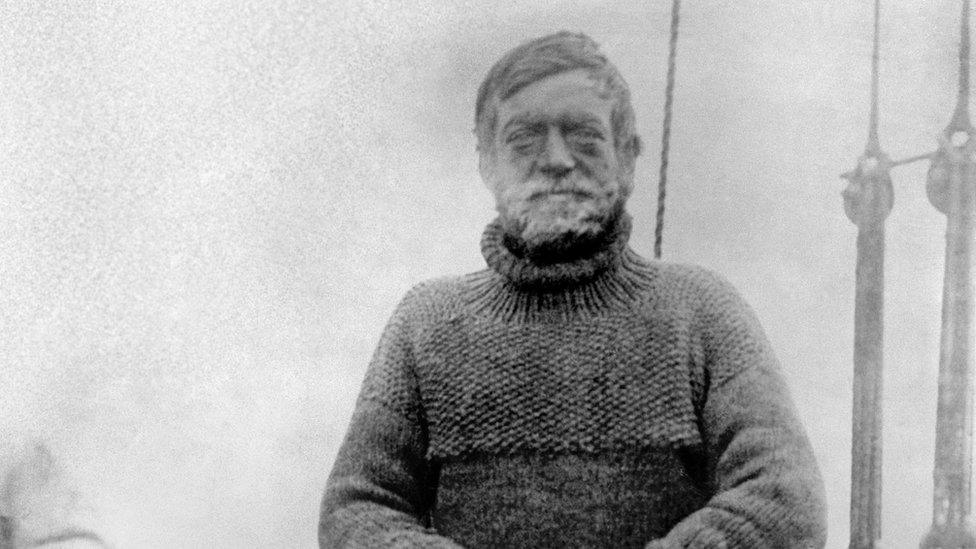Ernest Shackleton: Antarctic ceremony marks 100 years since explorer's death
- Published
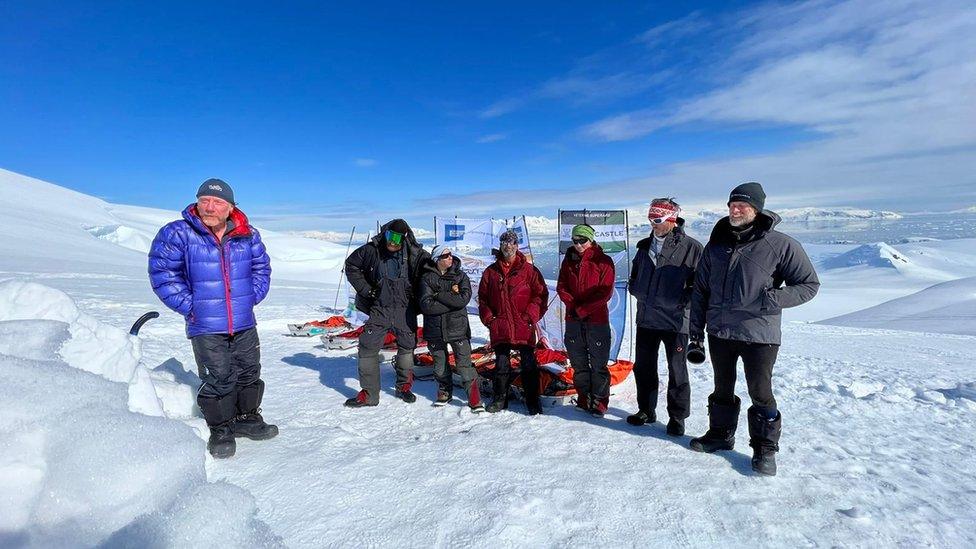
Antarctic Quest 21 held a ceremony on the Antarctic Peninsula in memory of Sir Ernest Shackleton
A team of scientists have held a ceremony in the Antarctic honouring the achievements of explorer Sir Ernest Shackleton.
He died 100 years ago on 5 January 1922 during his final Antarctic mission, aged 47.
A team of scientists set off on a research expedition across Antarctica in December in his memory.
The group set off from Plymouth as Shackleton did for his final mission 100 years ago.
The Shackleton Commemoration Expedition, by Antarctic Quest 21, is also hoping to learn more about climate change.
Paul Hart, Antarctic Quest 21's leader, said the ceremony was for Shackleton and for every person who undertakes these feats to learn more about the planet.
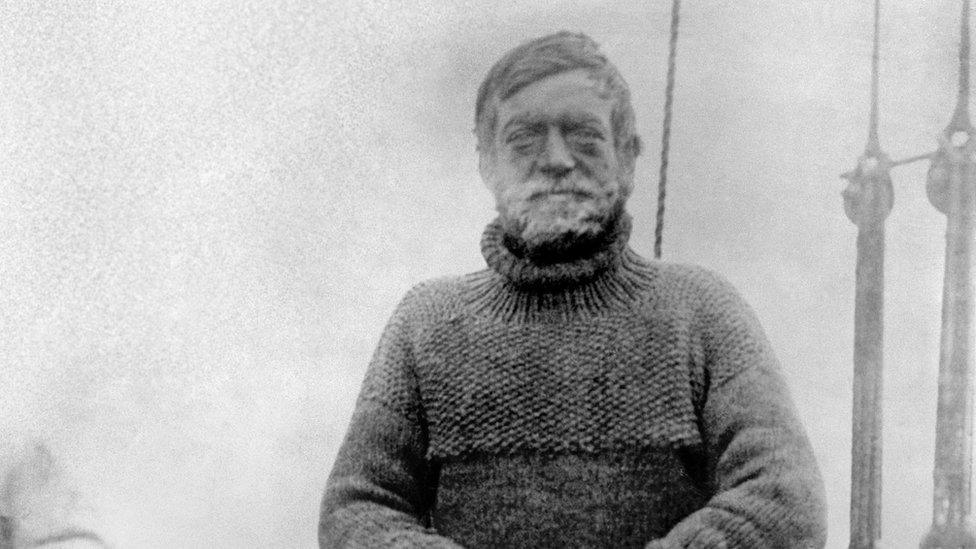
The photograph issued on the announcement of the death of Sir Ernest Shackleton in 1922
"100 years ago he was setting out on what was going to be a voyage of scientific exploration.
"He was very interested in protecting the polar regions so it only seems fitting 100 years on that we should commemorate someone whose work and life was dedicated to exploration, science and giving us a greater understanding of the planet we live on," he said.
As part of the quest, the scientists from Devon are crossing Antarctica's Forbidden Plateau, measuring UV levels to inform scientists about the ozone layer and gathering snow samples to measure microplastics.
It will show whether pollution has travelled to the furthest parts of the world.
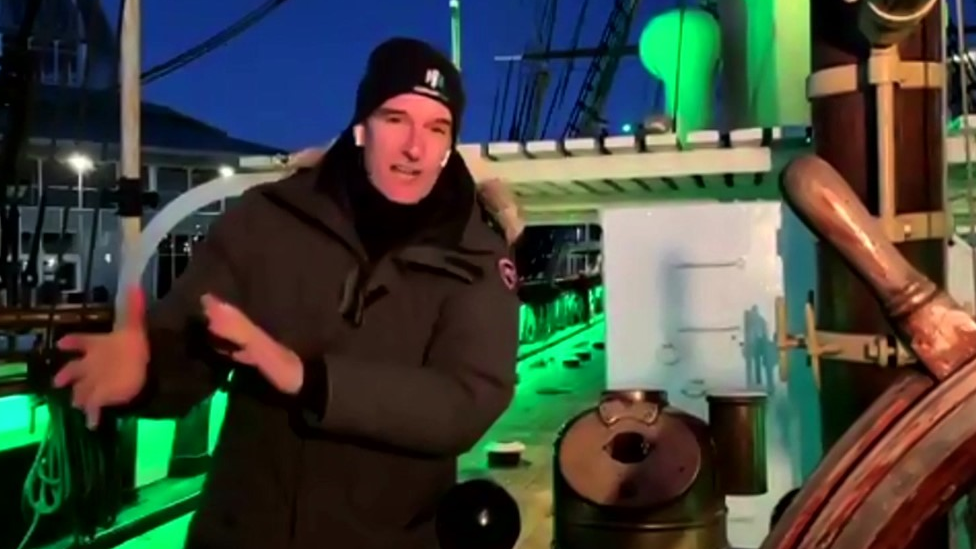
Historian Dan Snow will join a team of scientists for Endurance 2022
Also to commemorate the centenary of Shackleton's death, historian Dan Snow is taking part in an Antarctic expedition, Endurance 2022, to try to find the Endurance shipwreck.
The ship sank in 1915 after it became trapped in ice, although everyone under Shackleton's command survived.
Estimated to be 3,000ft (900m) down, the group will be using artificial intelligence to conduct a survey of the seabed to see what is "basically the most historic shipwreck in the world as yet undiscovered," Snow told BBC Breakfast.
"We hope it's going to be in very good condition because it's extremely cold down there, it's very difficult for life forms to survive down there," he added.
Shackleton's granddaughter Alexandra Shackleton said she thinks his leadership is what made his memory go on to inspire so many adventurers.

Alexandra Shackleton said she hoped Endurance 2022 would "appreciate" the preservation of the wreckage should they find it
"When his ship was crushed they lived on tents on the ice with the sea surging beneath. He personally chose who would be in each tent, not typical of a leader of the time.
"He didn't put all the officers in one set of tents and the men in the other, he balanced the personalities because he knew his men," she said.
A plaque was unveiled in Plymouth in September marking a century since the polar explorer left the city on his final expedition to Antarctica.

Follow BBC News South West on Twitter, external, Facebook, external and Instagram, external. Send your story ideas to spotlight@bbc.co.uk, external.
Related topics
- Published24 September 2021
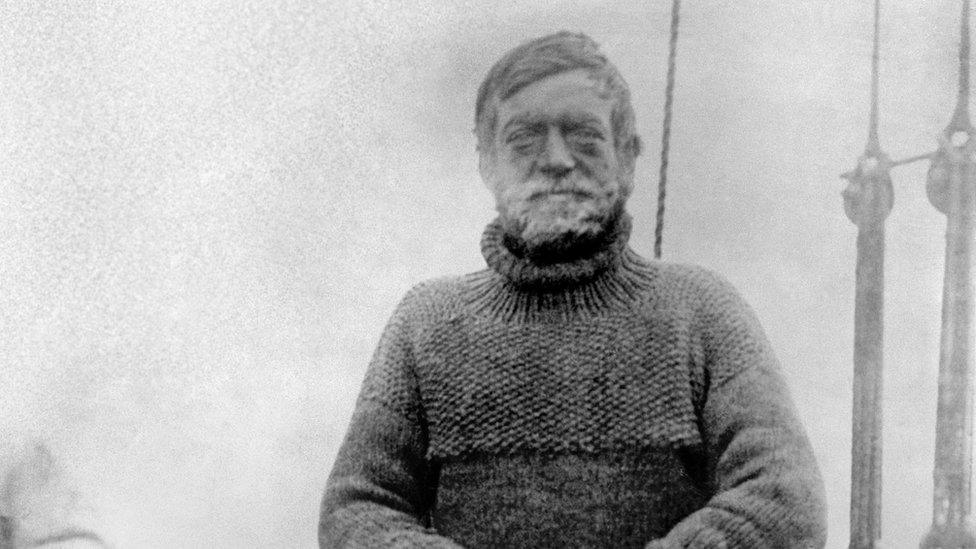
- Published16 December 2021
